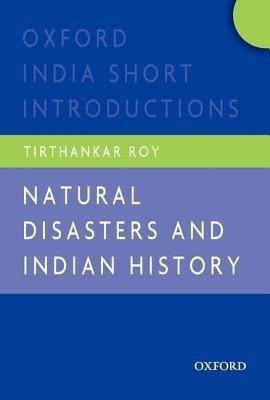Natural Disasters and Indian History(English, Paperback, Roy Tirthankar)
Quick Overview
Product Price Comparison
First study on the social and economic history of disasters Links disasters with the growth of knowledge Accessible to a general readership Looks at the short, medium and long run responses to disasters The Oxford India Short Introductions are concise, stimulating, and accessible guides to different aspects of India. Combining authoritative analysis, new ideas, and diverse perspectives, they discuss subjects which are topical yet enduring, as also emerging areas of study and debate. This short and exploratory study is the first to engage with a social and economic history of natural disasters in India. Based on the study of a number of events that occurred in colonial India between 1770 and 1935, the author argues that the impact of natural disasters requires a graded sense of time. The book draws on three themes-market, politics, and knowledge, roughly corresponding to three time scales-the short, the medium, and the long run, respectively. These frame the case studies of famines, earthquakes, and storms covered in the book. These studies illustrate that disasters become devastating events by impairing the capacity of the state and civil society; they create gainers and losers; and they destroy cooperation. Yet, as the author points out, disasters have also enabled new understandings of nature, state, and society, on the basis of which useful new knowledge could grow. About the Author Tirthankar Roy is Professor of Economic History, London School of Economics and Political Science. He has published Company of Kinsmen: Enterprise and Community in South Asian History 1700ŌĆō1940 (2009) and The Economic History of India 1857ŌĆō1947, 3/e (2011) with OUP. Table Of Contents Acknowledgements List of Figures and Map 1: Introduction 2: Famines 3: Storms 4: Earthquakes Further Reading Index


